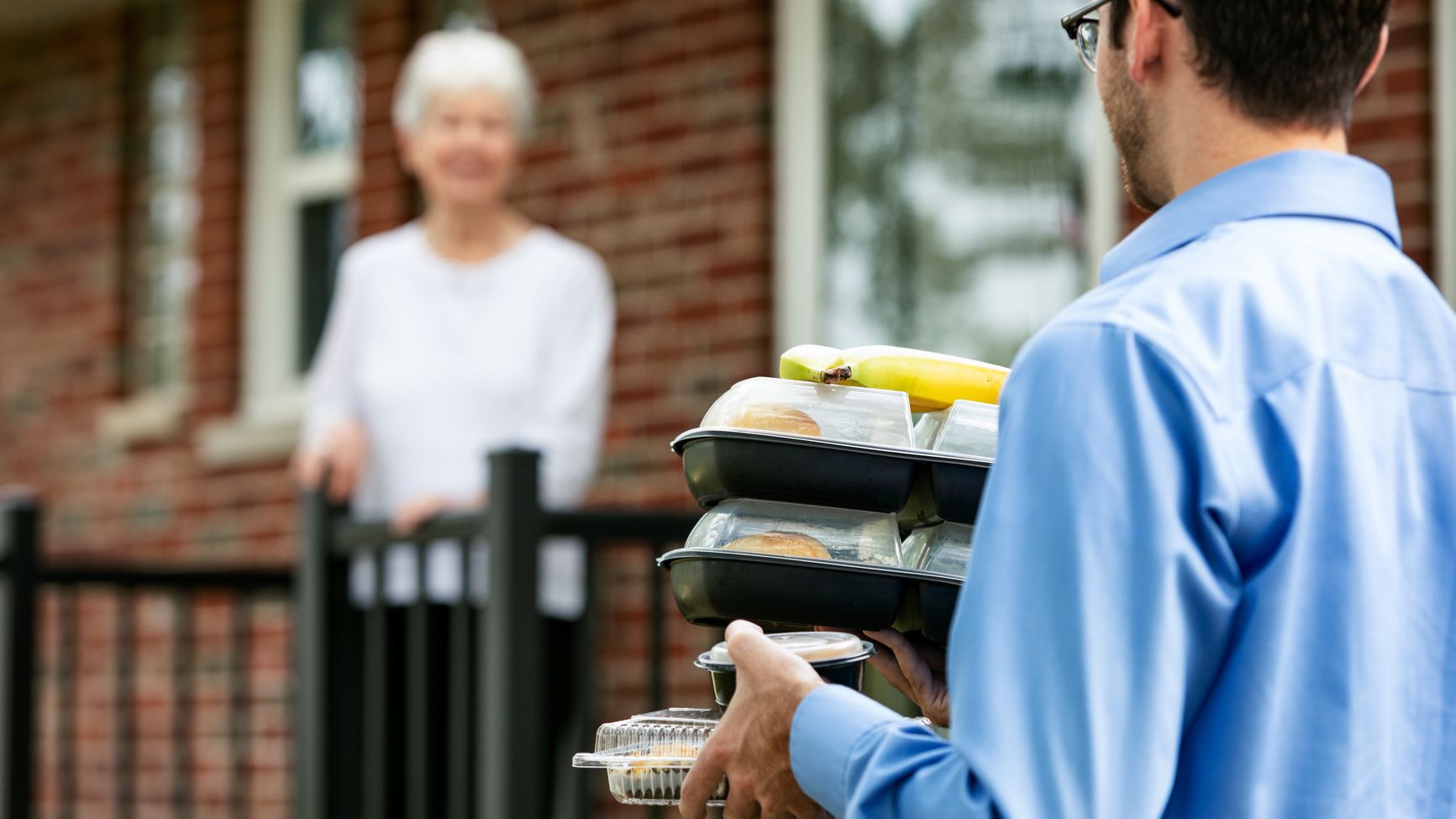5 Ways to Support Grieving Loved Ones
Sponsored Content from National Funeral Directors Association

The death of a loved one is already one of life’s most difficult experiences; however, when a friend or family member dies during the COVID-19 pandemic, regardless of the cause of death, the grief journey becomes even more complex. Social distancing, gathering restrictions and simply living in a COVID-19 world creates a unique and unprecedented grieving experience.
Given these challenging circumstances, it is more important than ever that people who are grieving have the support of other friends and family on their grief journey. While there are currently limitations on how one can support and comfort a loved one as they grieve, there are still ways to thoughtfully and meaningfully support grieving individuals.
Share Stories
From just $107.88 $24.99 for Kiplinger Personal Finance
Become a smarter, better informed investor. Subscribe from just $107.88 $24.99, plus get up to 4 Special Issues

Sign up for Kiplinger’s Free Newsletters
Profit and prosper with the best of expert advice on investing, taxes, retirement, personal finance and more - straight to your e-mail.
Profit and prosper with the best of expert advice - straight to your e-mail.
Sharing stories is one of the most meaningful ways to honor the life of a loved one. When you share stories about an individual who has died and invite your grieving friends or family members to do so, you make personal connections that will help them begin to adjust to a world without their loved one.
While you may be hesitant to ask a grieving individual about their loved one because you think it will be too painful, know that often they want nothing more than to be asked to share stories and memories. If the family was unable to hold a funeral due to the pandemic, they missed an important opportunity to gather and pay tribute to the deceased, making it all the more important to make those connections.
It’s important to note that if the pandemic prevented your loved one from having a funeral or tribute for the person who died, assure them that it is never to late to do so.
Connect Using Technology
Feelings of isolation are a normal part of grieving but, especially now, those who have experienced loss might feel lonelier and more isolated than ever. Fortunately, in a time when face-to-face communication is limited, video calls or attending a funeral virtually via a digital platform such as Zoom provide convenient options for making meaningful connections.
Video calls can be the next best thing to offering comfort in person. When you can’t physically be there to offer a hug or consoling touch, connecting face-to-face, even via a screen, helps your loved one feel less alone. And if you can attend the funeral, whether it is in person or virtual, do so – your presence will be deeply appreciated.
Create a Network of Support
As they say, it takes a village, and that is perhaps never truer than when supporting someone who is grieving. As you’re able to do so, enlist the help of other friends or family members to create a network of support for your grieving loved one.
Grief is a communal process – building a supportive community to help, both immediately and long-term, ensures the griever’s needs are met and the supporter role does not fall only on one person’s shoulders. Grief is not necessarily over in a matter of days, weeks or months; each person’s grief journey is different, so ensuring others are there to offer ongoing support is crucial now and in the future.
Help with the Day-To-Day
Something as simple as having a meal delivered from a favorite restaurant, assisting with household chores, or even helping to plan a service are gestures that show you care, while also looking out for their basic needs as family and friends grieve.
Go beyond “What can I do to help?” by being specific. Try, “I'm running to the grocery store. Can I get anything for you?” Your offer will take the burden off the griever to tell you how to help and shows them you can be a reliable, trusted member of their support system.
Check in Often
Taking a few minutes to send a text, make a phone call, send an email or mail a card can make a grieving loved one feel supported. Sometimes just offering to listen and make them feel heard and understood is exactly what they need.
Grief does not end when the funeral is over. Checking in early and often, even in a small way, can make all the difference.
Here’s more on how to understand your own and others’ grief and loss.
This content was provided by NFDA. Kiplinger is not affiliated with and does not endorse the company or products mentioned above.
Profit and prosper with the best of Kiplinger's advice on investing, taxes, retirement, personal finance and much more. Delivered daily. Enter your email in the box and click Sign Me Up.
-
 Ask the Tax Editor: Federal Income Tax Deductions
Ask the Tax Editor: Federal Income Tax DeductionsAsk the Editor In this week's Ask the Editor Q&A, Joy Taylor answers questions on federal income tax deductions
-
 States With No-Fault Car Insurance Laws (and How No-Fault Car Insurance Works)
States With No-Fault Car Insurance Laws (and How No-Fault Car Insurance Works)A breakdown of the confusing rules around no-fault car insurance in every state where it exists.
-
 7 Frugal Habits to Keep Even When You're Rich
7 Frugal Habits to Keep Even When You're RichSome frugal habits are worth it, no matter what tax bracket you're in.